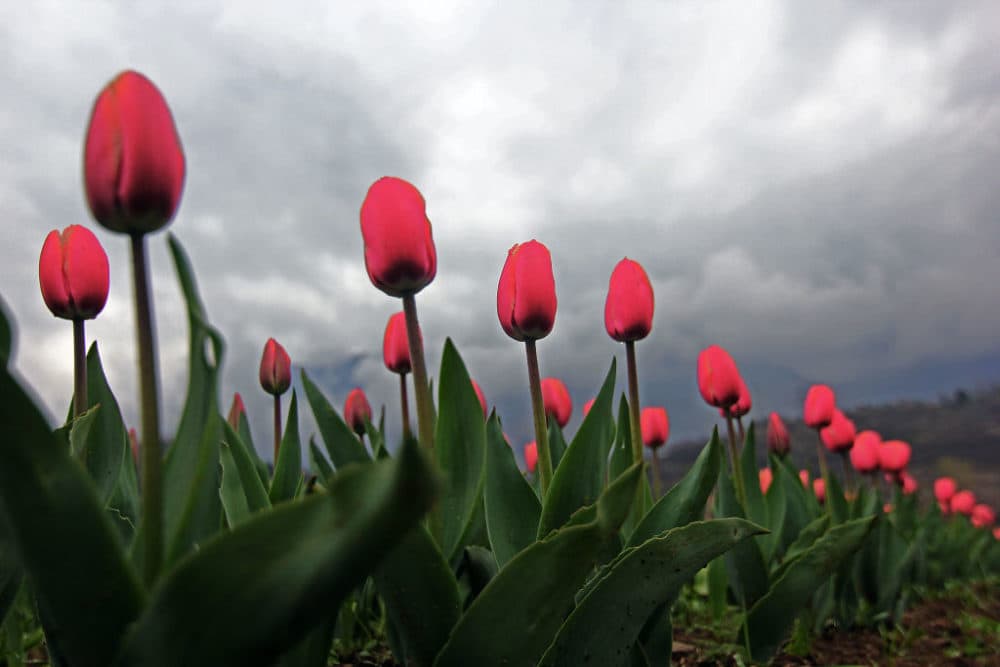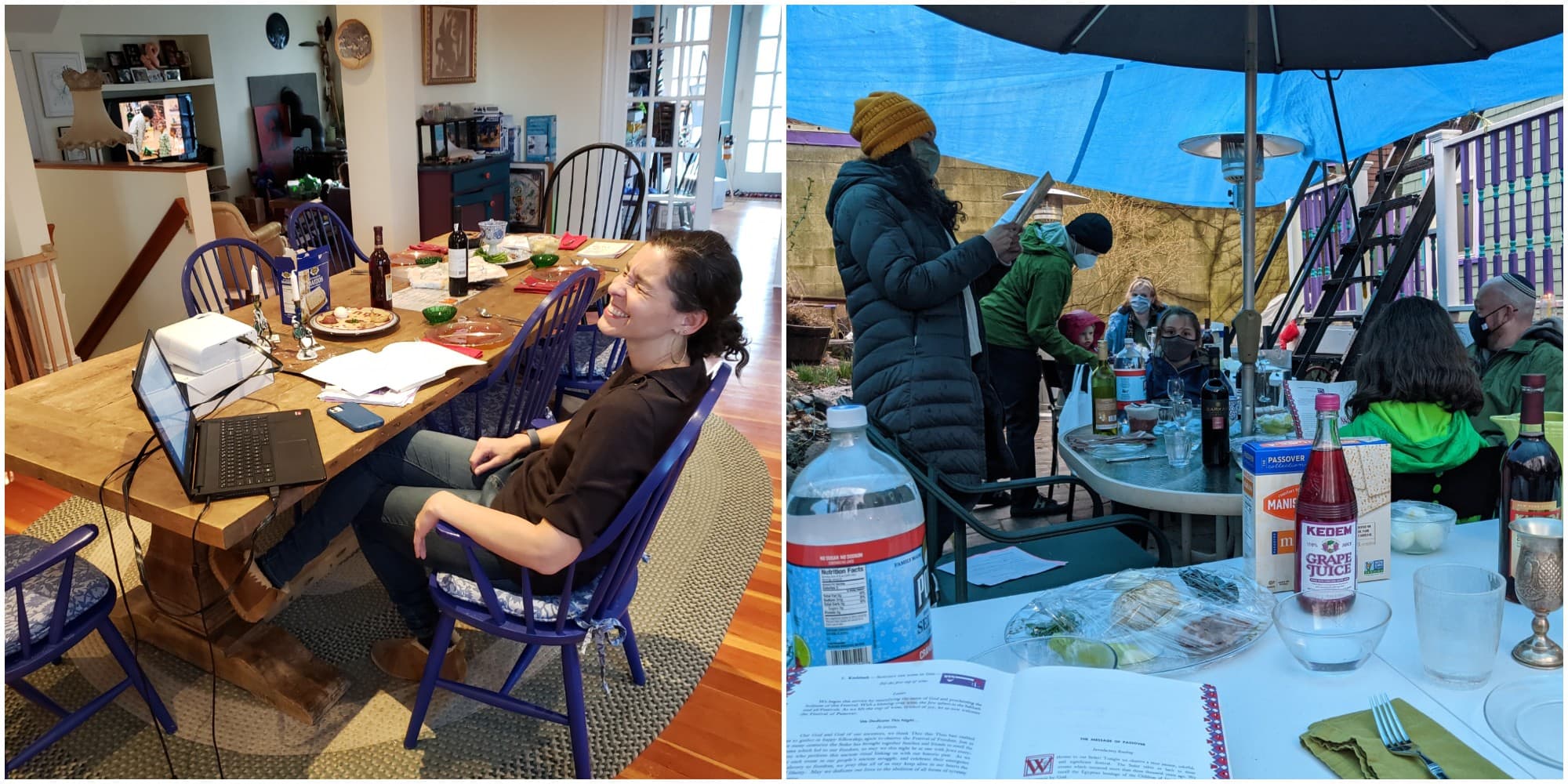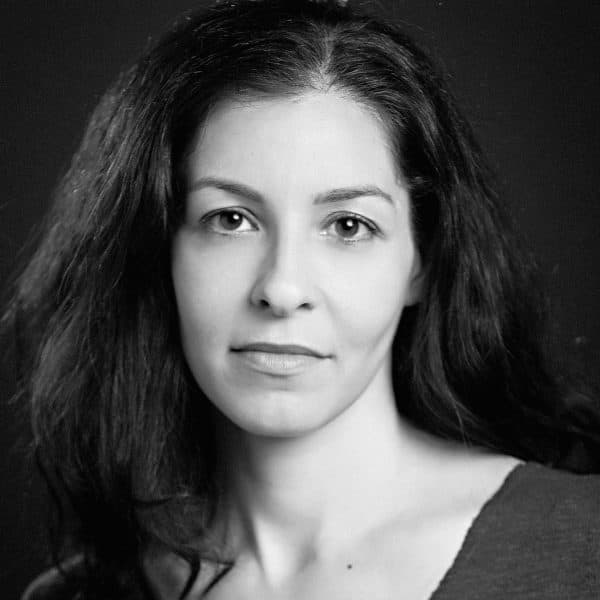Advertisement
Commentary
The Ancient Jews Carried Trauma And Joy Into Their New Lives. We Can, Too

Passover, the Jewish holiday that commemorates the ancient Jews’ liberation from slavery in Egypt, arrived three weeks into our 2020 quarantine. We adapted last year, moving our family seder dinners to Zoom — quickly learning its limitations with group singing. On the second night of Passover, we began counting the Omer, the 49-day period that’s connected to the harvest and to the holiday of Shavuot, when the Jews received the Torah at Mount Sinai.
It’s difficult, already, to remember the specifics from those early weeks of the pandemic. Uncertainty and fear colored every moment. Each day brought a new, terrifying milestone as COVID-19 cases and deaths rose, and our return to school and work was delayed indefinitely. But back then, 49 days seemed just distant enough to hold promise; maybe, I hoped, the pandemic would be under control in those seven weeks, and we’d be back to normal.
Instead, our quarantine year anniversary has passed, and a second Zoom Seder with it.
By counting the Omer this year, I’m allowing myself to sit with this darkness, even as we move toward some light.
I’m counting the Omer again this year, with a new blend of emotions: grief, resignation, a touch of superstition — should I repeat my rituals from 2020, or consider them cursed? Yet I’m also counting the days with a stronger sense of hope. I don’t believe in “back to normal” anymore; with all the losses of this year, normal is a state many of us can’t reach. I do believe in better, though, and these days I wake up knowing that some version of better lies ahead.
At Passover, we re-tell the story of the ancient Jews’ escape from Egypt: the plagues raining upon Pharaoh, the Jews fleeing so quickly there wasn’t time to let the bread rise, the Red Sea miraculously parting to let them through. When we begin counting the Omer on the second night, we’re continuing the story: we fled Egypt as a group, but didn’t become what most of us recognize as “the Jewish people” until we received the Torah at Mount Sinai. That’s what we celebrate on Shavuot, after counting those 49 days: the moment we agreed, collectively, on the shared identity and principles that bound us together.
This year, I find myself wondering about that in-between time in a new way. I’d always envisioned the ancient Jews leaving Egypt with joy and excitement about a life of freedom. In truth, many must have been terrified and unsure. They probably worried about what lay ahead, and doubted their compatriots along the way. Counting the Omer, and celebrating Shavuot, are a reminder that it’s not always so easy to emerge from trauma; it takes time to heal, and trust in one another to become whole again.
Advertisement

This past year, we have all been living through trauma, and it feels hard to become whole. There has been so much loss, so much bitterness, so much disappointment and distrust to bear. We’ve battled our teachers, our neighbors and our family members. We have not embraced, sufficiently, a shared sense of identity and responsibility for each other.
By counting the Omer this year, I’m allowing myself to sit with this darkness, even as we move toward some light. Taking it day by day, I find myself more patient with the process, more grateful for how far we’ve come already. At this time last year, our playgrounds were blocked off with caution tape; this weekend, my children played for hours, masked, with friends. Last year, we worried about finding groceries; now, we’re adept at scheduling curbside pickups. Last year, we held two Seders on Zoom; this year, we braved the rain and gathered in our backyard for the holiday's second night, in a small group at a safe distance.
It wasn’t anything like normal, but it felt like a moment of triumph, and a reason for joy.
When the ancient Jews received the Torah, it didn’t bring the story to a neat and tidy ending. The pandemic won’t have one, either. There are losses we won’t ever get over; many of us will be hurting for a long time. But with each passing day, I know that I’ve held on this far, and can hold on a little longer. By the time we finish counting the Omer in May, we’ll have long days of warmth and light waiting for us. This year, that’s enough.
